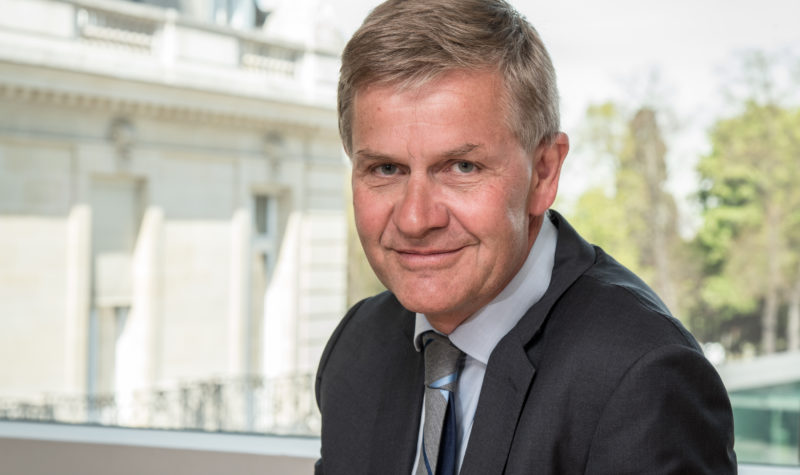Executive Director, UN Environment (UNEP), Eric Solheim, has urged governments to mobilise citizens to beat plastic pollution by avoiding, replacing, and recycling plastic products.

Solheim made the submission during the opening of the First Meeting of the Ad Hoc Open-ended Expert Group on Marine Litter and Microplastics that held from May 29 to 31, 2018 in Nairobi, Kenya.
He underlined the importance of the statement: “Beat Plastic Pollution”, which is the theme of 2018 World Environment Day that will be observed on Tuesday, June 5.
Mette Løyche Wilkie, Director, UNEP Ecosystems Division, emphasised that robust international cooperation is required to tackle marine litter, even as he outlined progress made in managing marine plastic pollution, including the Global Programme of Action for the Protection of the Marine Environment from Land-based Activities (GPA).and its Global Programme on Marine Litter; and SDG Target 14.1 to, by 2025, prevent and significantly reduce marine pollution of all kinds, which includes marine litter.
Geoffrey Wahungu, National Environment Management Authority, Kenya, shared the country’s experiences in instituting and implementing the ban on plastic carrier bags. He highlighted several challenges including resistance by manufacturers, and pointed to potential further action on plastic bottles.
Ad Hoc Open-ended Expert Group on Marine Litter and Microplastics meeting was preceded by a preparatory meeting of major groups and stakeholders. Some 270 delegates attended the meeting, representing governments, non-governmental organisations, academia and intergovernmental organisations.
At this meeting, delegates:
- exchanged views on the barriers to combatting marine litter and microplastics, discussing the need to prioritise the most significant barriers;
- considered the work of existing mechanisms addressing this issue, including a new global governance structure;
- examined the feasibility and effectiveness of response options in the short-, medium, and long-term,; and
- agreed to hold a second meeting in November 2018.
They agreed to finalise the Co-Chairs’ summary, the main output of the meeting, within two weeks of the closure of this first meeting in order to allow delegations to provide meaningful feedback.
Delegates also exchanged views on the structure, topics for, and date and venue of the second meeting of the Expert Group, with some discussion on whether to hold the meeting in Geneva to facilitate greater input from organisations conducting work related to marine litter and microplastics.
The meeting concluded on the understanding that the meeting report, including the Co-Chairs summary, would provide further guidance on the next steps for the Expert Group.
The Ad Hoc Open-ended Expert Group was established in 2017 under resolution 3/7 of the third UN Environment Assembly (UNEA 3) on marine litter and microplastics. The resolution recalled two previous UNEA resolutions on marine plastic debris and microplastics (1/6) and marine plastic litter and microplastics (2/11), and mandated the Expert Group to meet not more than twice before the next UNEA in order to:
- explore all barriers to combating marine litter and microplastics, including challenges related to resources in developing countries;
- identify the range of national, regional and international response options, including actions and innovative approaches, and voluntary and legally binding governance strategies and approaches;
- identify environmental, social and economic costs and benefits of different response options;
- examine the feasibility and effectiveness of different response options; and
- identify potential options for continued work for consideration by UNEA.
